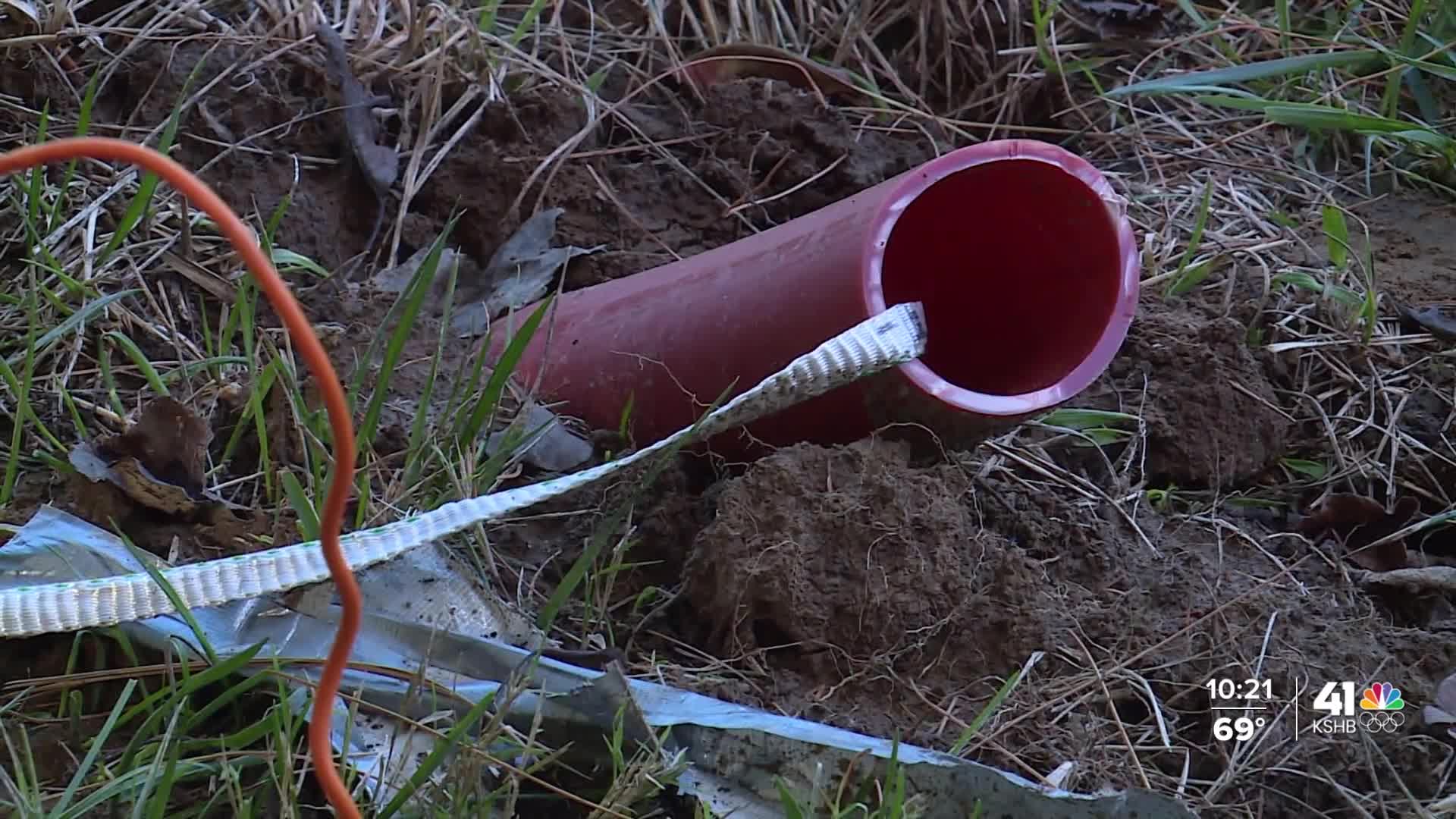KSHB 41 reporter Isabella Ledonne covers issues surrounding government accountability, solutions and consumer advocacy. Share your story with Isabella.
—
Nearly one in four utility damage incidents are caused by fiber broadband/telecommunications installation, according to the Common Ground Alliance's most recent data report.
In the last week, Lexington, Missouri, experienced two separate gas line strikes in 24 hours from contractors installing fiber broadband for Xfinity. In both incidents, the Indian Hills neighborhood was evacuated. No injuries were reported.
The incidents came five months after broadband contractors struck a gas line that wasn't properly marked, according to the NTSB. That incident led to a house exploding, killing a five-year-old boy.

KSHB 41's Isabella Ledonne has reported extensively on the deadly incident and has been taking an in-depth look at why the majority of gas line strikes in Missouri point back to broadband installation.
Colored flags typically mark the location of gas, water and other utility lines. It's a necessary step before companies installing fiber internet start digging underground.

Lexington's mayor explained that broadband in Missouri has significantly expanded since 2018.

"Every rural community in the state has broadband money to set up and expand to go from poor internet to 5G," Mayor Tom Hughes said.
However, broadband in Missouri has also contributed to a significant number of strikes to gas lines.
"It actually happens a lot," Hughes said. "It happens in communities all over the state because of the rush to get internet in."
According to the Common Ground Alliance's 2024 national DIRT report, there were 189,052 unique damage reports in 2024. Fiber construction and/or telecommunications cable installation caused 23% of those reports. It's the second-highest cause, right behind sewer and water construction at 24%.
"A lot of mistakes are made because of their expediency," Missouri 811 executive director Randy Norden said. "It's the time against the clock to get things done."
There's been an increase in fiber construction damage in Missouri, despite installation projects staying consistent from previous years at around 17% of all construction. Norden explained that contractors should follow the Common Ground Alliance's best guidelines, which have recently been adopted into Missouri law.
That includes properly marking lines, waiting for all utilities to respond, and properly planning dig sites.

"That is really where the best practices will come in, to help identify where there are actions of negligence," Norden said.
The Common Ground Alliance lists fiber broadband construction as one of the highest risk categories.
"As we move forward, we're just trying to make sure we can do it safely and that there are no more incidents," Hughes said. "Can't guarantee that, and that's a sad thing."
Mayor Hughes put a pause on all fiber work following the gas line strikes in the small Missouri town. City leaders are calling a meeting with Liberty Utilities and contractors before fiber broadband work resumes.
"I want to make sure that everybody is safe," Hughes said. "They [shouldn't] have to worry about gas lines or any other thing being hit in town while we're trying to get into the 21st century."
Missouri updated its laws to increase accountability for companies installing underground lines and contractors digging near them. That coverage can be found here.
—





